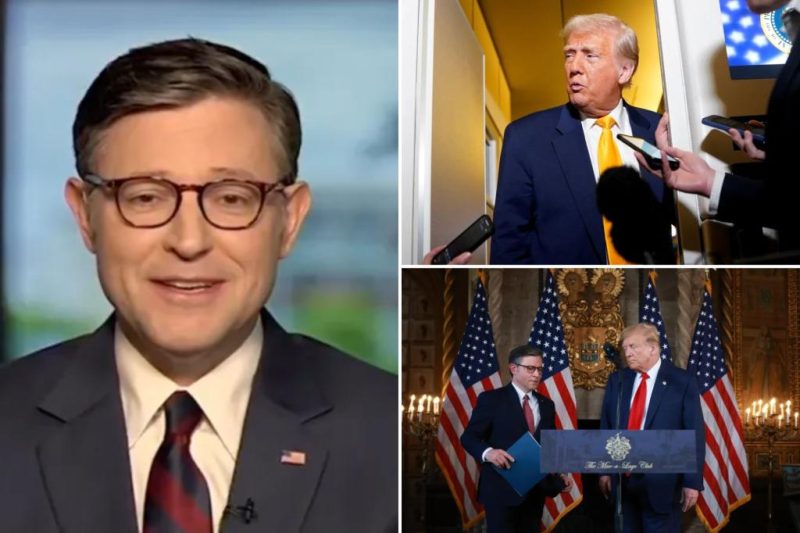
Recent reports suggested a surprising shift in the Republican party’s stance on taxation. President Trump reportedly indicated openness to raising taxes on the wealthy to fund his ambitious agenda. However, this potential sea change has been met with immediate resistance from within the party’s leadership.
House Speaker Mike Johnson has swiftly dismissed the idea, pouring cold water on any suggestion of increased taxes on high-income earners. This stark rejection underscores the deep divisions within the Republican party regarding economic policy, particularly concerning tax reform and government spending.
While the specifics of Trump’s proposal remain unclear, the Speaker’s strong opposition highlights the challenges any such initiative would face in gaining traction within the Republican caucus. Johnson’s statement signals a significant hurdle for any attempt to implement tax increases on the wealthy, even with the President’s apparent support.
The clash between Trump’s tentative suggestion and Johnson’s outright rejection throws a spotlight on the internal power dynamics within the Republican party. It also raises questions about the viability of funding large-scale government projects through increased taxation on the wealthy, a proposal that often faces strong opposition from conservative lawmakers.
This situation is likely to continue to evolve, and the coming weeks will be crucial in determining whether any compromise can be reached between the opposing factions within the Republican party. The debate over tax policy will undoubtedly remain a central theme in American politics, with significant implications for the country’s economic trajectory.










